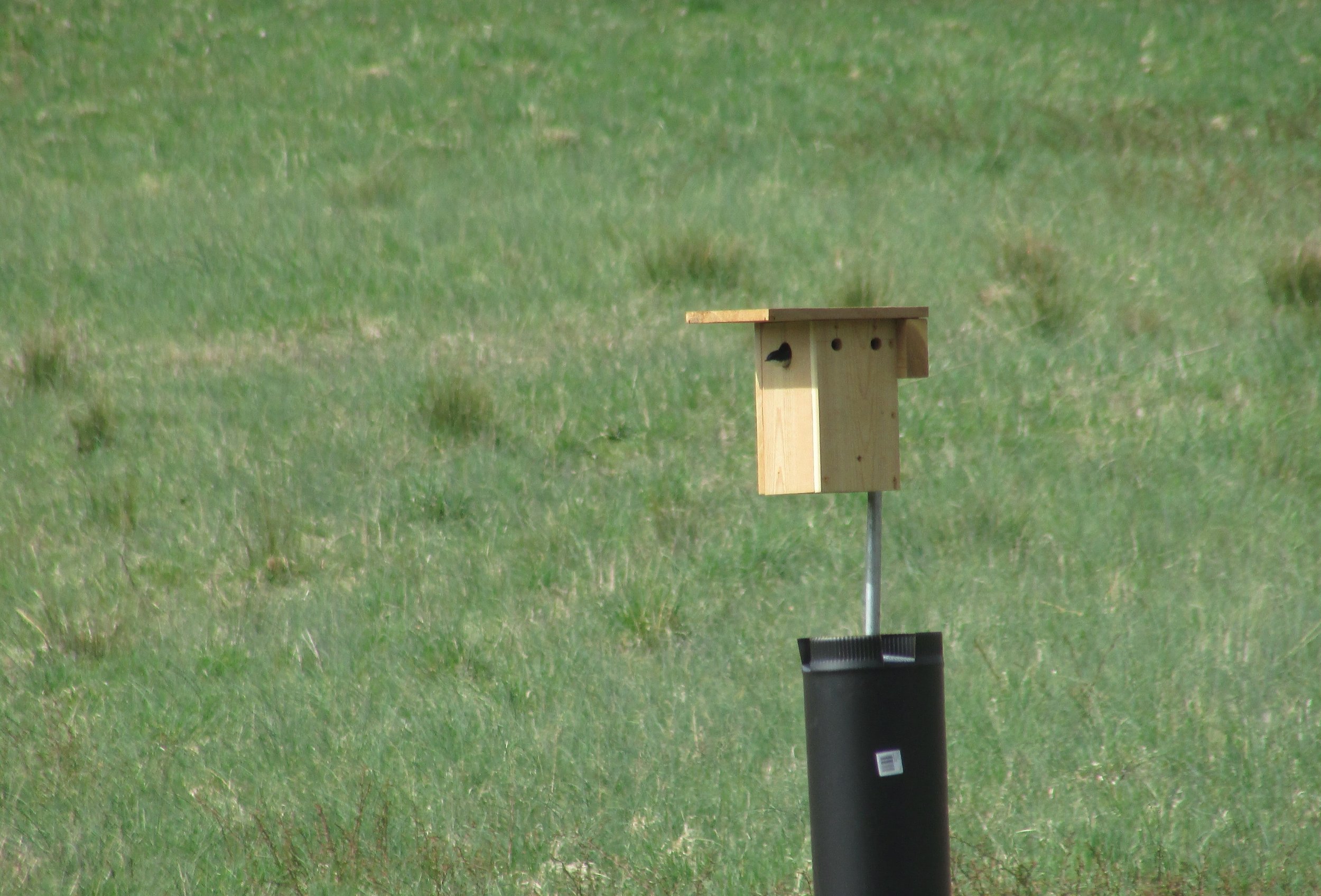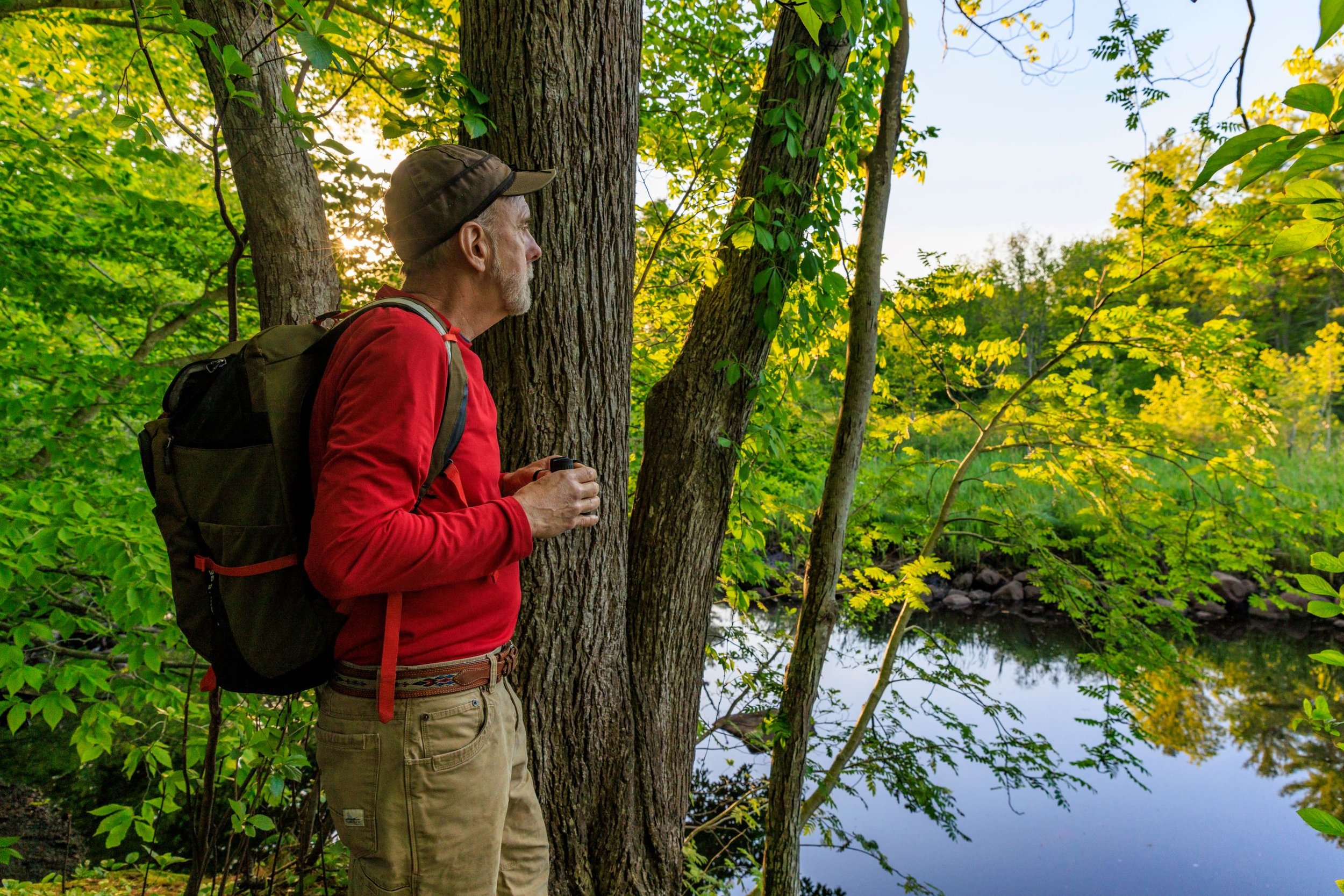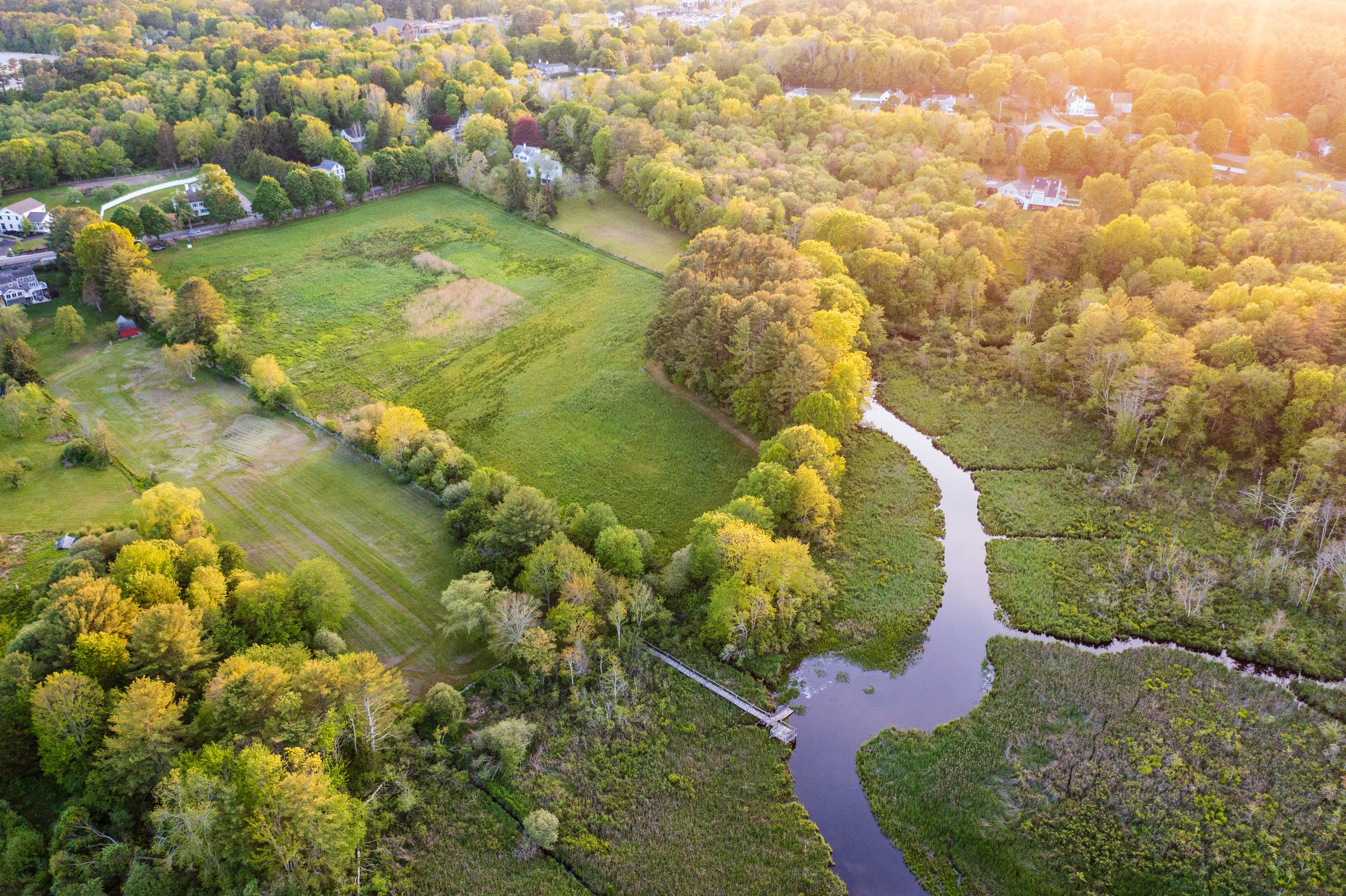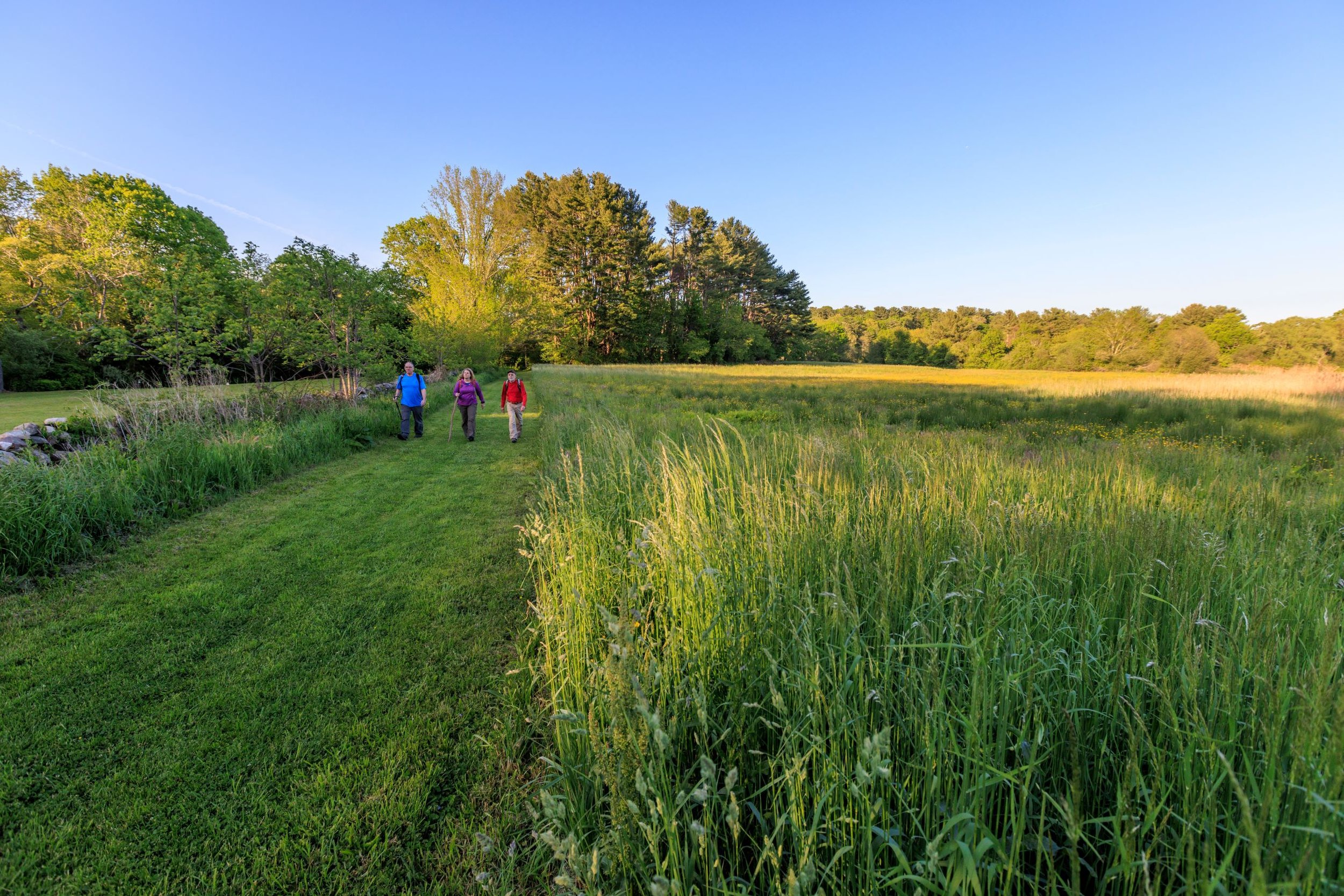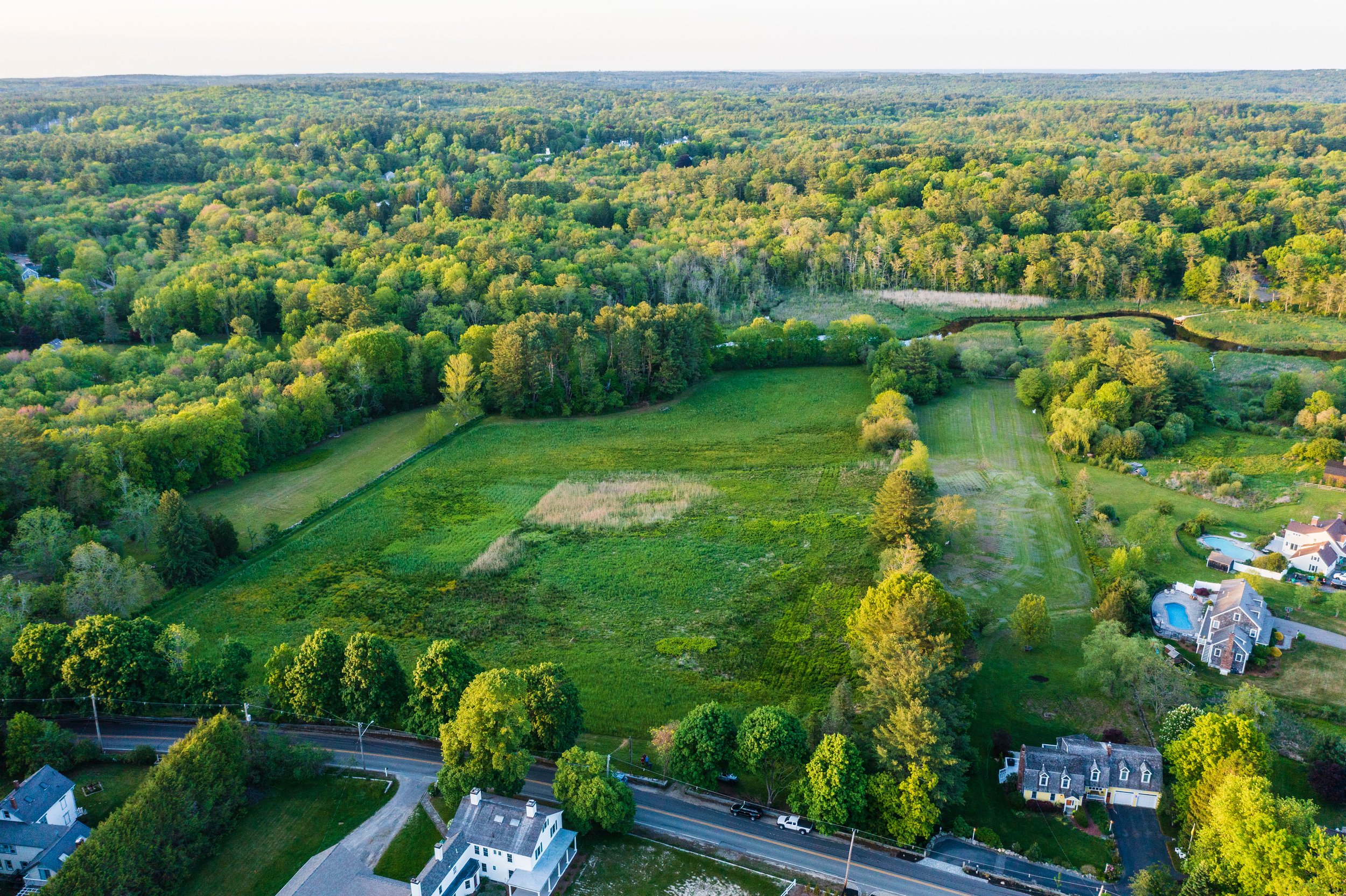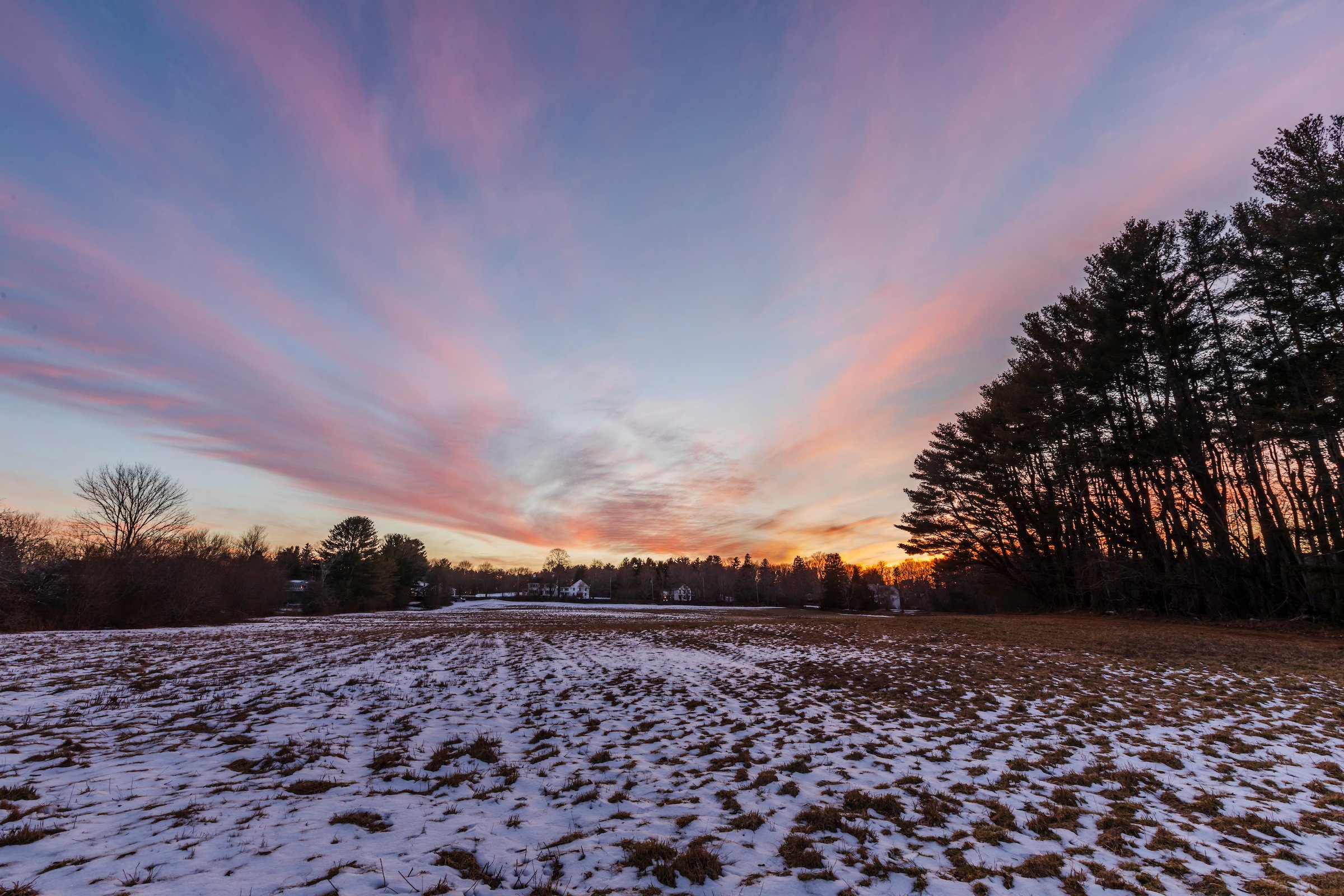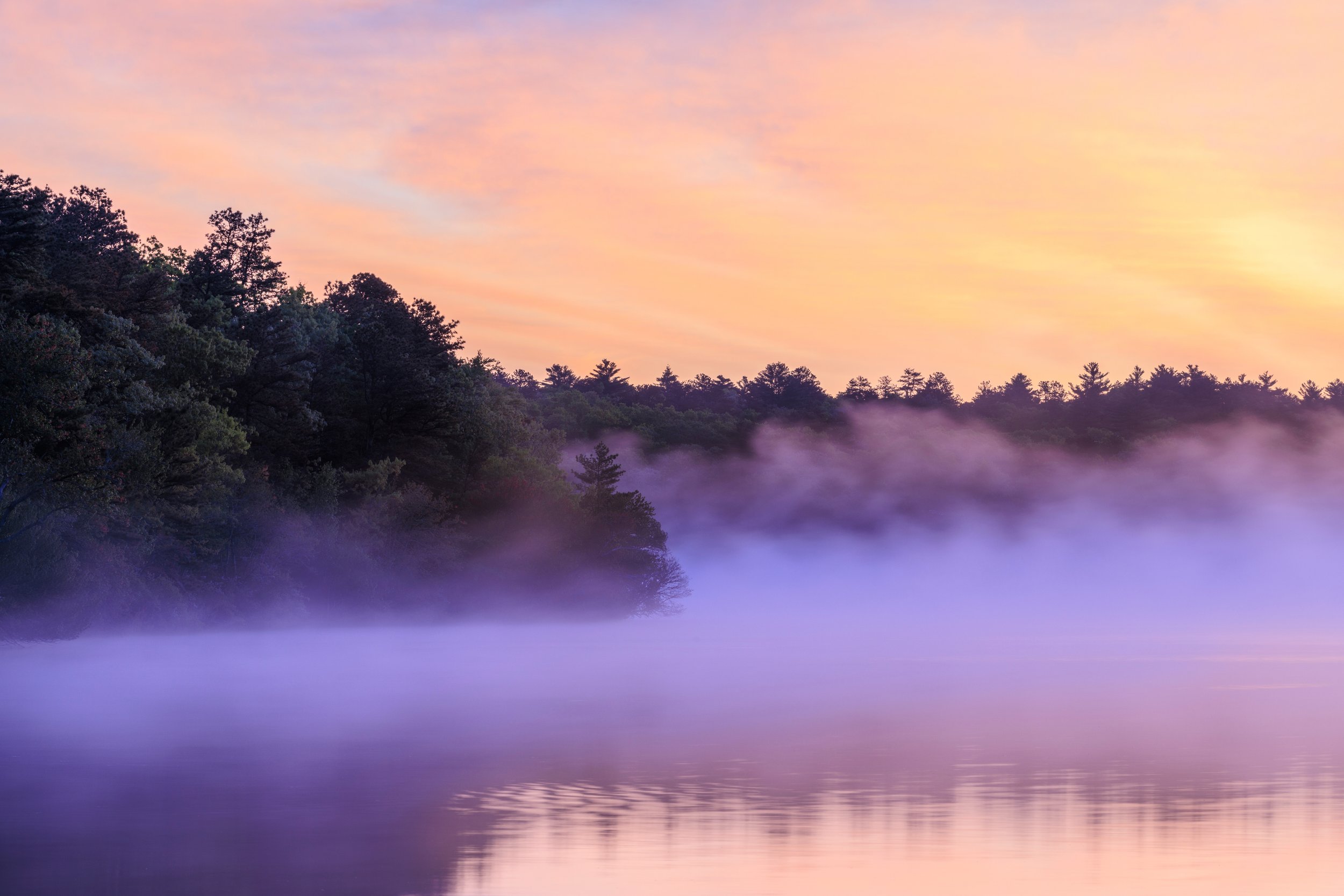Harry and Mary Todd Trail at Willow Brook Farm in Pembroke. Photo by Rob MacDonald.
It’s been almost a year since we started our revitalization project at Willow Brook Farm in Pembroke. Thanks to your support of our summer fundraising campaign, we’ve already made major strides toward our goal of keeping Willow Brook healthy and safe for future generations of people and wildlife. While there’s much left to do, we wanted to keep you apprised of the latest on our efforts.
In early February, Wildlands staff and volunteers spent a VolunTuesday completing the replacement of the first boardwalk on the Harry and Mary Todd Trail. That means, after a couple months out of service, the Todd Trail is back open! The trail will close again at some point in the spring so our stewardship team can repair the second boardwalk. So enjoy it while you can!
Earlier this winter, we also cleared a new trail along the perimeter of Willow Brook’s central field. Known as the Pasture Loop, the path affords visitors a close-up view of the freshly restored stone wall, and a glimpse into the preserve’s agricultural past. Learn more about the human history of Willow Brook Farm here.
Pasture Loop at Willow Brook Farm in Pembroke. Photo by Rob MacDonald.
If it’s been a while since you’ve visited Willow Brook Farm, you’ll notice an even more dramatic change to the landscape, with trees and other vegetation cleared back from much of the entrance trail and field. That’s because Wildlands has embarked on an ambitious restoration of the preserve’s grassland habitat.
True to its name, Willow Brook Farm was an agricultural site for over 300 years. Diverse wildlife made itself home in the grasslands spanning most of the property. Since then, forests have reclaimed much of the land, save for the central field that Wildlands mows annually to preserve this critical habitat. Unfortunately, invasive plants and woody growth continue to encroach on the field from the forest edges, threatening the grassland’s suitability for native birds, insects, and other wildlife. Removing this aggressive vegetation is the first step to restoring the field’s beauty and diversity.
Grassland restoration is a multi-year process, so we appreciate your patience.
Willow Brook Farm in Pembroke. Photo by Rob MacDonald.
Up next at Willow Brook Farm: refurbishing the parking lot, improving trail signage, and building covered picnic tables. Stay tuned!
In other trails news:
Thanks to our VolunTuesday crew, a new trail at Emery Preserve in Plymouth offers visitors a more varied route to the iconic Beech Tree Clearing. The trail is now a loop, connecting to existing trails on the other side of Ship Pond Road.
See the green loop in the southeast corner of this trail map:
At Sylvester Field Conservation Area in Hanover, the boardwalk on the southeast portion of the trail loop is closed for the winter as Wildlands staff works to lower its incline. The rest of the trail remains open.
See you on the trails!







